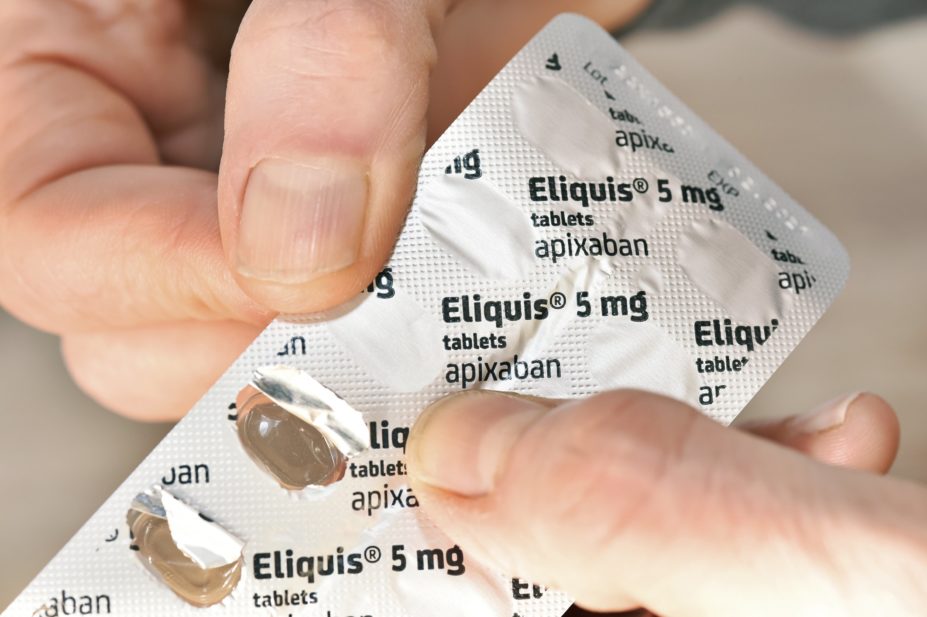
Dr P Marazzi / Science Photo Library
Apixaban is associated with less major bleeding, death and hospitalisation than vitamin K antagonist warfarin, regardless of a patient’s stroke history, a secondary analysis of the AUGUSTUS trial, which was previously published in the New England Journal of Medicine (18 March 2019), has indicated[1],[2]
.
For the secondary analysis, presented at the American Stroke Association’s International Stroke Conference 2020 (21 February 2020) in Los Angeles, California, trial investigators divided the AUGUSTUS study population into two groups: patients with and without a history of stroke, transient ischemic attack (TIA) or thromboembolism. Of the 4,581 patients with the information available, 13.8% had experienced a stroke, TIA or thromboembolism.
Results were consistent with the trial’s main finding — that patients with atrial fibrillation and an acute coronary syndrome, or undergoing percutaneous coronary intervention with a P2Y12 inhibitor (such as clopidogrel), experienced less major bleeding and fewer events if they received apixaban than if they received a vitamin K antagonist. This was irrespective of whether they had experienced a stroke in the past. The risk of bleeding was higher with aspirin than placebo among patients with no prior events.
“Even in a high-risk group of patients with prior stroke, ‘less is more’,” said Maria Cecilia Bahit, lead investigator and chief of cardiology at INECO Neurociencias, Rosario, Argentina.
“A strategy of apixaban plus a P2Y12 inhibitor without aspirin has the most favourable outcomes, and triple therapy — a vitamin K antagonist plus aspirin, plus a P2Y12 inhibitor — should be avoided.”
References
[1] Bahit M, Li Z, Alexander J et al. American Stroke Association’s International Stroke Conference 2020, Los Angeles, California, 21 February 2020.
[2] Lopes R, Heizer G, Aronson et al. N Engl J Med 2019; 380:1509-1524. doi: 10.1056/NEJMoa1817083
You may also be interested in

New class of anticoagulant found to ‘overwhelmingly’ reduce bleeding events in patients with atrial fibrillation

Nearly 92% of atrial fibrillation patients in England anticoagulated, says NHS adviser
